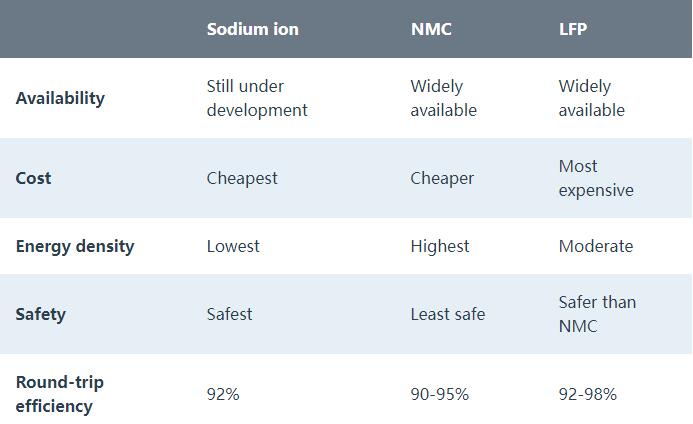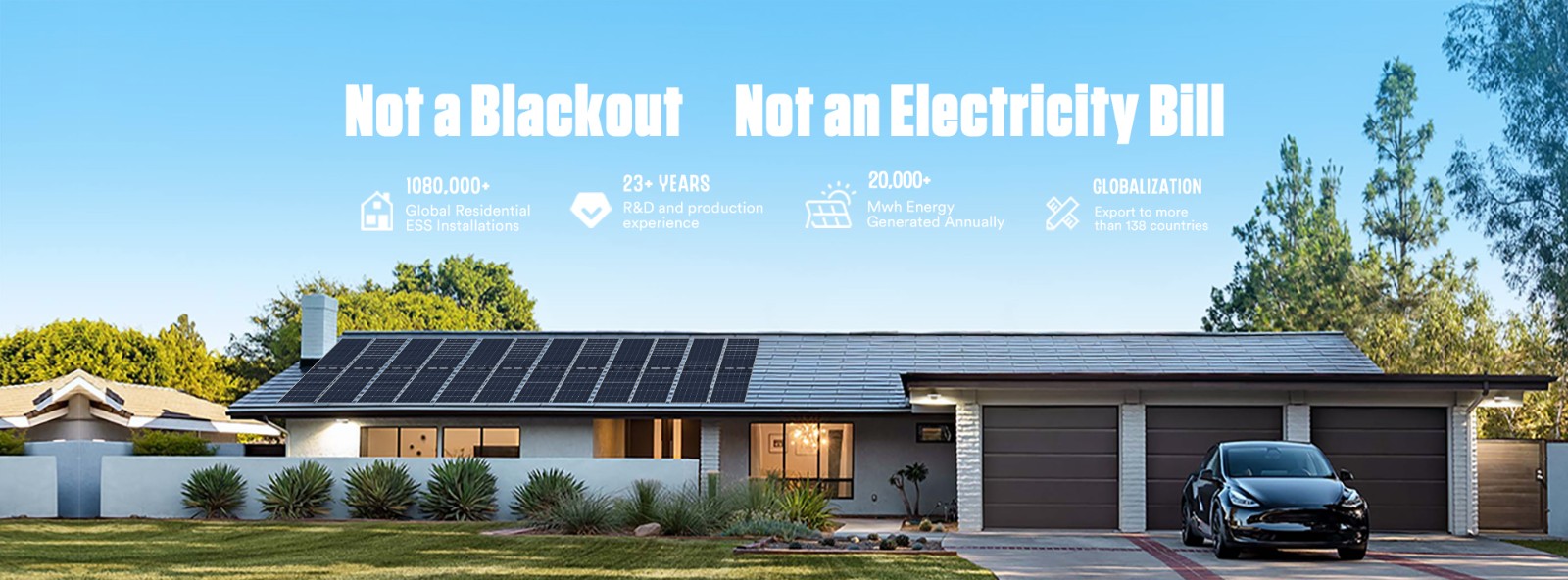www.meritsunpower.com

MERITSUN, the Best Lithium Energy Solution Provider.
What is a sodium-ion battery?
Sodium-ion batteries use sodium as the charge carrier. The internal structure of sodium-ion batteries is similar to that of lithium-ion batteries, which is why they are often pitted against each other. Sodium-ion batteries are as rechargeable as lithium-ion, lead acid and absorbent glass mat (AGM) batteries.
Na-ion and Li-ion battery technology
Let's compare sodium-ion batteries to two popular lithium-ion batteries - nickel manganese cobalt (NMC) and lithium iron phosphate (LFP).
These lithium-ion batteries are the most common type of solar product found in residential solar photovoltaic (PV) systems.
Table 1. Na-ion, NMC, and LFP batteries

Energy Density and Efficiency
Sodium-ion batteries have the lowest energy density of their class, which means they take up more space than lithium-ion batteries. NMC batteries have the highest energy density.
10 kilowatt-hour (kWh) lithium-ion batteries take up less space in your home than 10 kWh sodium-ion batteries, even though they have the same capacity. This can be an issue if you have limited space on your property, but this may change in the future as sodium-ion batteries are still in development.
All three battery technologies offer round-trip efficiencies in excess of 90%. This means that batteries are efficient at minimising energy loss, allowing more of the energy produced by the solar panel to be stored than lost during storage.
Batteries with high round-trip efficiency can power appliances and devices for extended periods of time. The round-trip efficiency of LFP cells is slightly higher than that of NMC and Na-ion cells. However, the differences are very small and only noticeable in large solar installations.
Safety
Solid-state sodium-ion batteries are safer than lithium-ion batteries because they are not flammable and can operate efficiently at high temperatures. Lithium batteries, while stable, can easily catch fire when used, charged or stored improperly.
Sodium batteries: a promising solution still in development
Sodium-ion batteries are the next generation solution for the growing residential solar industry.
Many see it as a way to expand energy storage because it uses a wide range of abundant and sustainable materials compared to lithium-ion technology. The low production cost of sodium-ion batteries can also facilitate product deployment. However, this battery type is still in the early stages of development and production.
On paper, sodium-ion batteries have many advantages over existing lithium-ion and lead-acid batteries—especially when it comes to sustainability. But these traditional batteries are tried and tested with a long history and a proven track record of performance in real-world applications. In our opinion, this is where sodium-ion batteries are most important and seriously missing.
So far, sodium-ion batteries seem to be on the right track as a future replacement for conventional batteries, but for now, there is nothing wrong with using currently available lithium-ion batteries for your solar installations.
MeritSun has mature industry knowledge and experience to provide you with strong help and support to develop the market.
Seize the opportunity now to meet the rigid demands of the market, we warmly welcome you to join us!

MeriTech is a professional LiFePo4 battery manufacturer since 1999, focus on alternative smart energy storage application. We produce Cells, house made BMS ,module and integrated system solutions. 23 years, we do only one thing, Energy Storage Battery .We proud of excellency : 100+R&D teams, 1368 employees, 48 fully automatic productions lines ,150,000 square meters factory.
MeritSun, The Best Power in the SUN.

This source of information comes from:https://www.solarreviews.com/blog/sodium-ion-solar-battery-storage
©1999-2023 MeriTech Power Limited | All Rights Reserved
We are here to help you! If you close the chatbox, you will automatically receive a responsefrom us via email. Please be sure to leave yourcontact details so that we can better assist